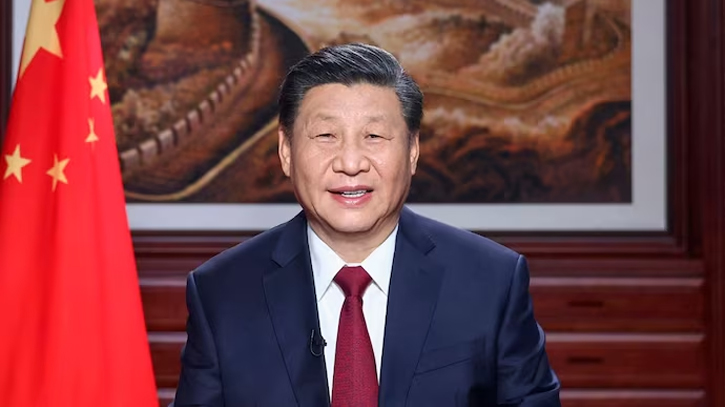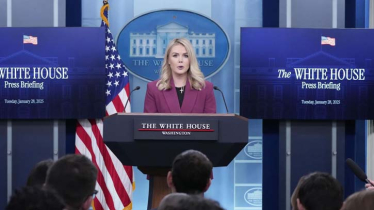
Chinese President Xi Jinping. File Photo.
Chinese President Xi Jinping met with representatives of US businesses on Wednesday (27 March) as Beijing seeks to woo foreign investment and reassure American firms in the face of a slowing economy.
Officials are keen to bring in investment to kickstart growth as they battle a range of headwinds including a prolonged property-sector crisis, soaring youth unemployment and a global slowdown that is hammering demand for Chinese goods.
Hosting the group of executives at Beijing's Great Hall of the People, state broadcaster CCTV showed Xi chuckling as he expounded on what he characterised as the mutual reliance between Beijing and Washington.
Among the attendees was Cristiano Amon, CEO of Qualcomm, a major producer of semiconductors -- which are at the forefront of US-China tech rivalry -- a photo released by Beijing's foreign ministry showed.
Also in attendance was Stephen Schwarzman, CEO of private equity giant Blackstone.
"Differences will always exist, because people are different, and even people from the same family are different, too," Xi said.
"But we should seek common ground and build more consensus. This is true between nations and as well as between family members," he added.
Xi said that "the history of China-US relations is a history of friendly exchanges between the two peoples".
"People from all walks of life in both countries should have more exchanges and more cooperation."
CCTV did not directly name the participants, but photos indicated that Apple CEO Tim Cook -- who recently visited China -- was not in attendance.
- Lower growth target -
Cook last week opened a new Apple store in Shanghai before making an appearance with other top executives at the China Development Forum in Beijing.
"I think China's really opening up, and I'm so happy to be here," Cook told a reporter from CGTN on the sidelines of the forum, according to a video posted on one of the state-run broadcaster's social media accounts.
Economic growth rates in China have been trending downwards for years, and Beijing this month set an annual target of "around five percent" --
significantly lower than the breakneck rates that powered the country's meteoric rise to prosperity.
The crucial China-US economic relationship has also suffered as the two powers clash on flashpoint issues from technology and trade to human rights
as well as over the self-ruled island of Taiwan and the South China Sea.
US firms in China have increasingly complained about what they see as an unfair business environment, with limited protection for intellectual property and preferential treatment afforded to domestic competitors.
Those fears were compounded last year by a broad crackdown on US consulting firms operating in China.
Commerce Secretary Gina Raimondo warned in August that business in China could become "too risky" for US firms without changes to the regulatory
environment.
China has rebuffed those fears, touting its openness to foreign investment and promising to do more to help them.
Last November, Xi spoke to US business leaders following a summit with President Joe Biden in San Francisco, promising to "build more bridges and
pave more roads for people-to-people interactions".
Messenger/Sumon








